Discover 10 game-changing sustainable technologies reshaping Indian businesses. Explore eco-friendly solutions driving profitability
The clamour for sustainable practices is growing louder, and Indian businesses
are starting to listen. No longer just a trendy buzzword, sustainability is becoming a core business imperative, driven by consumer demand, regulatory pressures, and a genuine desire to protect our planet.
Thankfully, technology is stepping up to the plate, offering a plethora of innovative solutions that are not only eco-friendly but also economically viable.
This article will explore ten such game-changing innovations, showcasing how Indian businesses can embrace sustainability without compromising profitability.
Green Energy Solutions (Solar & Wind)
India boasts abundant sunshine and wind resources, making solar and wind energy ideal alternatives to traditional fossil fuels. Many businesses are now investing in rooftop solar panels, reducing their reliance on the grid and lowering their electricity bills.
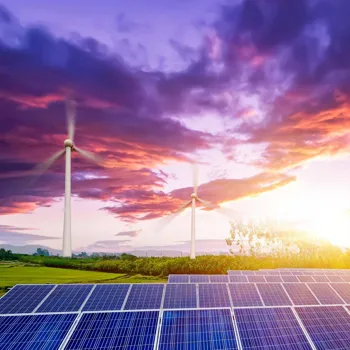
Wind energy, particularly for larger industrial units, offers another avenue for clean power generation. Government subsidies and falling technology costs are making these options increasingly attractive for businesses across various sectors.
This shift towards renewable energy not only minimizes carbon emissions but also enhances energy independence, shielding businesses from volatile fossil fuel prices.
Smart Building Management Systems
Buildings are notorious energy guzzlers, consuming significant amounts of electricity for lighting, heating, and cooling. Smart building management systems leverage sensors, data analytics, and automation to optimize energy usage in buildings.

These systems can monitor occupancy levels, temperature, and lighting conditions, adjusting energy consumption accordingly.
For example, lights can be automatically dimmed or turned off in unoccupied areas, and HVAC systems can be optimized to maintain comfortable temperatures without wasting energy. Implementing such systems can significantly reduce a building's carbon footprint and operational costs.
Water Management Technologies
Water scarcity is a major challenge in many parts of India, making efficient water management crucial for businesses. Innovative technologies like rainwater harvesting, wastewater treatment, and smart irrigation systems can help conserve water resources.
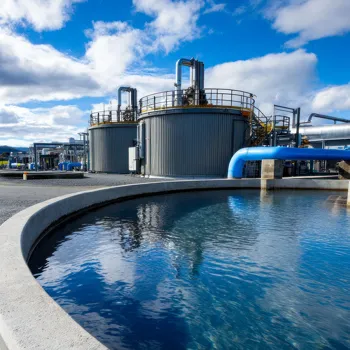
Rainwater harvesting collects rainwater from rooftops and other surfaces, storing it for later use. Wastewater treatment systems purify used water, making it suitable for non-potable applications like irrigation and toilet flushing.
Smart irrigation systems use sensors and weather data to optimize irrigation schedules, minimizing water waste in agricultural and landscaping operations.
Sustainable Packaging Materials
Traditional packaging materials, particularly plastics, contribute significantly to pollution and landfill waste. Businesses are increasingly switching to sustainable packaging alternatives like biodegradable plastics, recycled paper, and plant-based materials.

These materials are made from renewable resources and decompose naturally, reducing their environmental impact. Some innovative companies are even exploring edible packaging options, further minimizing waste.
Adopting sustainable packaging demonstrates a commitment to environmental responsibility and resonates positively with environmentally conscious consumers.
Electric Vehicles (EVs) & Sustainable Transportation
The transportation sector is a major source of air pollution, particularly in urban areas. Electric vehicles offer a cleaner alternative to traditional gasoline-powered vehicles, reducing emissions of harmful pollutants.
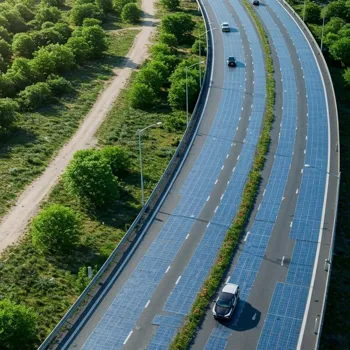
Businesses are increasingly adopting EVs for their transportation needs, including delivery fleets and employee transportation. The government is also promoting EV adoption through subsidies and incentives.
In addition to EVs, businesses can also encourage sustainable transportation options for employees, such as cycling, walking, and public transportation.
Precision Agriculture
Agriculture is a vital sector in India, but traditional farming practices can be resource-intensive and environmentally damaging. Precision agriculture technologies use sensors, data analytics, and GPS technology to optimize farming operations.

These technologies can monitor soil conditions, weather patterns, and crop health, allowing farmers to apply inputs like water and fertilizers more efficiently. This reduces waste, minimizes environmental impact, and increases crop yields.
Precision agriculture also helps farmers make more informed decisions, improving their profitability and sustainability.
Carbon Capture and Storage (CCS)
Carbon capture and storage technologies capture carbon dioxide emissions from industrial sources and store them underground, preventing them from entering the atmosphere.
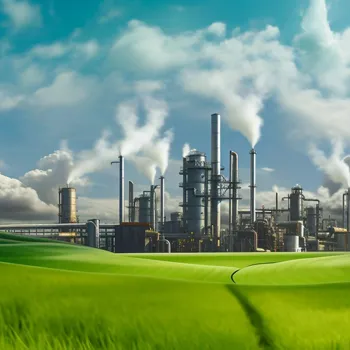
While CCS is still in its early stages of development, it has the potential to significantly reduce carbon emissions from industries like power generation and cement production. Several pilot projects are underway in India to explore the feasibility of CCS technology.
Widespread adoption of CCS could play a crucial role in mitigating climate change and achieving carbon neutrality.
Green Chemistry
Green chemistry focuses on designing chemical products and processes that minimize the use and generation of hazardous substances. It promotes the use of renewable feedstocks, safer solvents, and more energy-efficient processes.
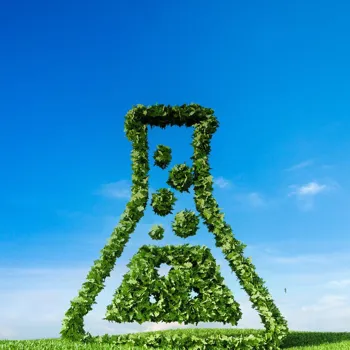
Businesses in the chemical industry are increasingly adopting green chemistry principles to reduce their environmental impact and improve the sustainability of their products. This not only benefits the environment but also enhances product safety and reduces regulatory compliance costs.
Life Cycle Assessment (LCA)
Life cycle assessment is a methodology for evaluating the environmental impacts of a product or service throughout its entire life cycle, from raw material extraction to disposal.
LCA helps businesses identify opportunities to reduce their environmental footprint at various stages of the product life cycle.
By conducting LCA, businesses can make more informed decisions about product design, manufacturing processes, and supply chain management, leading to more sustainable outcomes.
AI-Powered Sustainability Solutions
Artificial intelligence (AI) is being increasingly used to develop innovative sustainability solutions across various industries. AI algorithms can analyze large datasets to identify patterns and predict outcomes, enabling businesses to optimize resource usage and reduce waste.
For example, AI can be used to predict energy demand, optimize transportation routes, and improve waste management processes. AI-powered solutions offer tremendous potential for accelerating the transition to a more sustainable economy.
By adopting these sustainable technologies, Indian businesses can not only reduce their environmental impact but also improve their profitability and competitiveness. Embracing sustainability is not just a matter of environmental responsibility; it is a smart business strategy that can drive innovation, enhance brand reputation, and create long-term value. The future belongs to those who embrace sustainability, and Indian businesses have a unique opportunity to lead the way.
These green solutions offer a brighter outlook for businesses large and small. Whether it’s embracing solar power or implementing AI-driven management strategies, there are countless ways for enterprises in India to lower carbon footprints and boost profitability.
By integrating these ten innovative techniques, companies are setting a new standard for sustainability that benefits both the environment and their bottom line.
India is now seeing a rise in green jobs in many sectors because of government policies.
When workers are ready to focus on eco-friendly products, the environment and economy will see long-term benefits. The switch will create new opportunities, which are essential to making a sustainable future for the country.
There is also a need to increase consumer awareness and education regarding sustainable products and practice. It is important to drive demand and encourages a shift toward environmental responsibilities among all levels of the society.
When consumer prefer sustainablity, businesses are more likely to adopt greener approaches.
To speed up sustainability, the cooperation of every aspect of the society is required.
Collaboration of the government, industrial, academia, and the society as a whole will push the needed infrastructure for the economy. This effort will ensure the Indian businesses not only become a lot greener, but will also be prosperous in the coming future too.
In conclusion, as India embraces sustainability, it is vital to balance economy growth with environmental protection. With the help of technology and commitment, the country can not only protect the earth but can also innovate and produce chances of growth in coming years too.
Together we can all grow with a sustainable approach, and build a greener, richer India.
AI Generated Content. Glance/InMobi shall have no liability for the content












